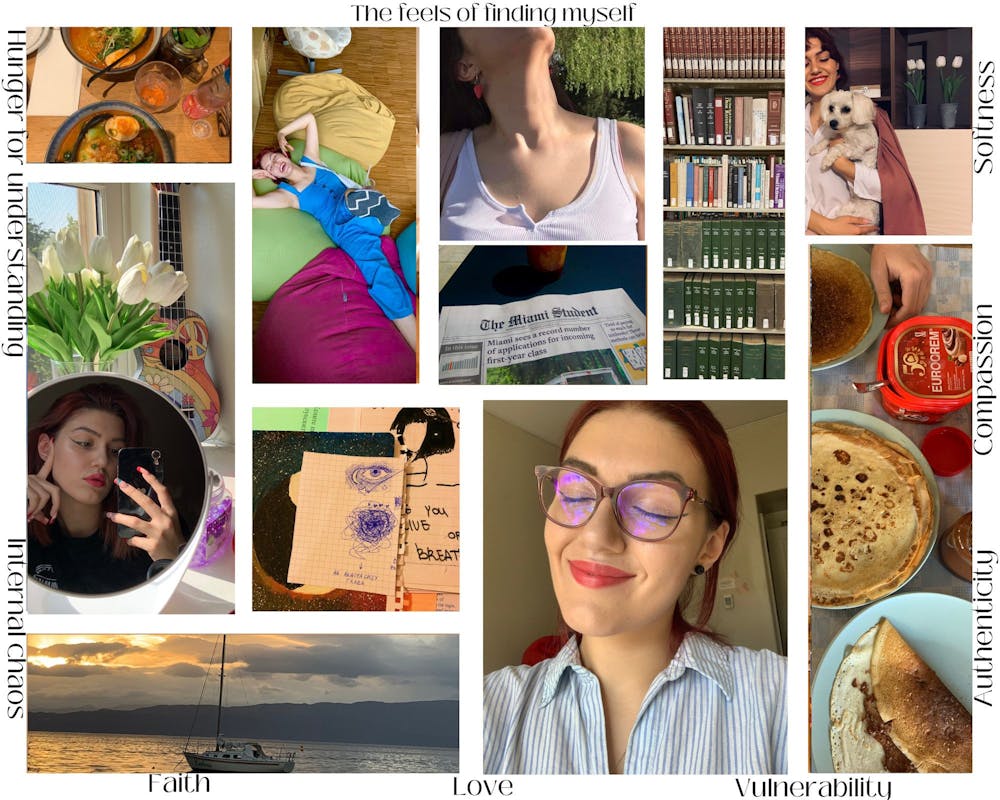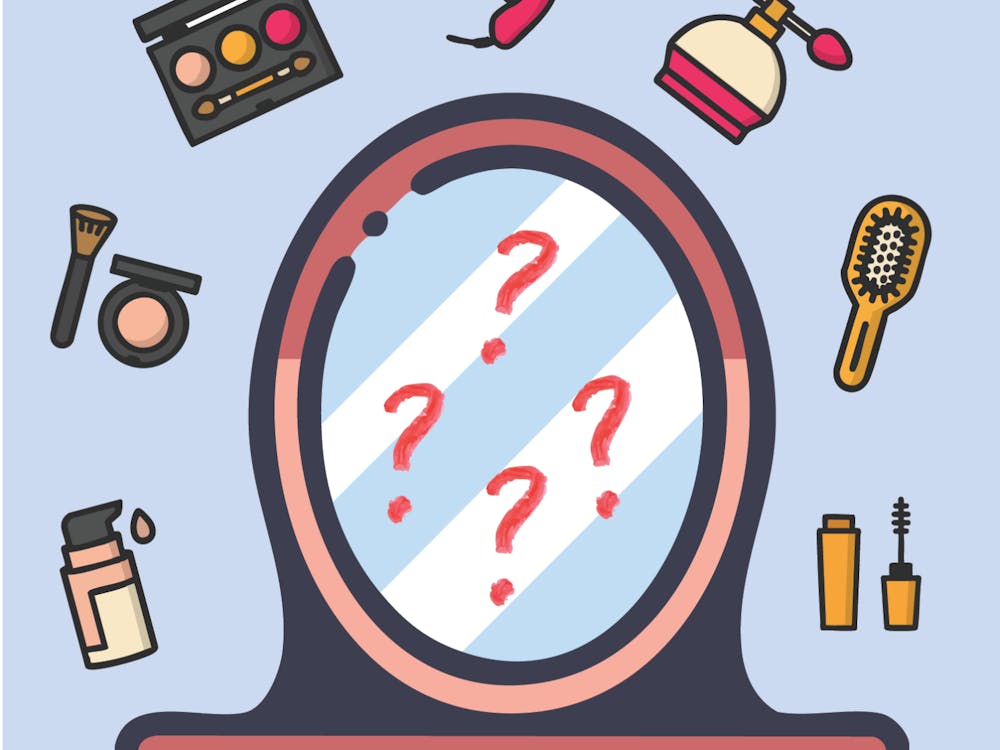I have never felt fuzzy about myself. Coming to college, I had all the self-confidence needed to uncover my veils of ignorance and to discover new truths. Almost a year and a half later, I am convinced I knew more about myself and the world when I was 14 than I do now at 20.
Friends, peers, family, professors, acquaintances — everybody told me that my 20s will be golden apples in the bushel of youth. I heard so much about this idea of “folle jeunesse,” a French term for the so-called wild youth, that at some point I felt my blood boiling in anticipation for it to come so I could thrive in my own skin.
The surprise came when I spent my 20th birthday having a sort of life crisis, crying in the bathroom of a dormitory in Estonia at 2 a.m. while on a study abroad trip. I called my mom in panic and told her that destruction is upon us and that turning 20 is the biggest curse life can throw at a teenager.
At that moment, I felt as if everything I knew about myself had suddenly vanished, and I realized that no tattoo, no vacation, no concert ticket, no friend or partner will ever save me from the responsibility of having to completely reconstruct and build myself from the ground up every few years.
So, here I am embarking on the journey of self-discovery and exploration. I’m hearing the same people who once claimed that my youthful 20s will be majestic tell me that in fact I was always there, and that I don't really need to find myself. They’ll tell me that I just need to dig deeper into my being.
It is a powerful claim to make and I salute them for it, but sometimes when I am listening to “Pluto Projector” by Rex Orange County at night, I wonder if it is actually possible to ever know anything about ourselves.
So here is my brief guide on finding yourself. Even if it’s impossible to ever fully find what you are, you and I should keep searching for the answers.
Remember that you are the owner of your house
When I look at myself in the mirror in the morning, I sometimes call myself “queen of imposter syndrome” because I simply excel at it. A seemingly very outgoing and confident person, I — like everyone else — have my days where belonging feels like an outdated aspect of my college life.
The truth is, sometimes I realize that my imposter syndrome is an ego dispute. Belonging is not something that is given to us — we build it ourselves, we choose the communities to which we want to belong.
We aren’t capable of predicting situations, people or sometimes even ourselves, and that is why we ought to learn the craft of emotional intelligence and effective communication.
Expand yourself horizontally and vertically
Enjoy what you're reading?
Signup for our newsletter
A huge part of growth is the art of flexibility and harmony. Sometimes you have to think of yourself as a water-filled balloon. To expand yourself horizontally and vertically means to figure out what adds value to your life. That is how much water fills you up, what makes you seek work-life harmony rather than balance and what makes you burst. The craft lies in experimenting with all the axes and thinking about what makes you truly yourself both in peaceful times and under pressure.
Create permanence and consistency within and out
Pop culture will tell you that consistency in your 20s is boring and inefficient. Who needs that stuff now, when you can have enriching permanence when you are 40? This idea that we have instilled in our minds doesn’t capture that life is like building blocks. You walk around trying to make the connections and, the truth is, we attract what we project.
Our deepest senses of who we are sometimes reveal themselves right in front of our eyes in the daily interactions with people and the way we talk to ourselves. Without nourishing a consistent attitude toward ourselves, we create anarchy in our own bodies.
Forgive, but don’t over-contemplate
One of my favorite political philosophers, Hannah Arendt, said, “Forgiveness is the only way to reverse the irreversible flow of history.”
Although she looks at it from a political standpoint in our relationship to others, forgiveness is indeed the only act that does not reenact something else, but acts anew and unexpectedly.
You have to forgive yourself every day for things you didn't even know you need to forgive. Guilt can crawl and fill us with inexplicable shame for things we do not need to apologize for. Forgive and don’t overthink your forgiveness. It is the only way to be okay with who you are.
And finally, accept that you will be finding yourself over and over…
For there is only one sun, but a million stars.
Anastasija Mladenovska is a second-year political science, finance and Russian, East European & Eurasian studies triple major from Macedonia. She is involved with the Honors College and Scholar Leaders. She also volunteers for the League of Women Voters of Oxford.




